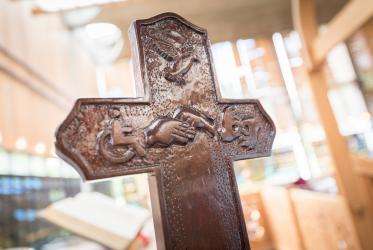The bloody conflict in Northern Ireland, the crimes committed under the apartheid regime in South Africa and under communist rule in eastern Germany, mass killings perpetrated by the Khmer Rouge in Cambodia or by the Guatemalan military during a 35 year long civil war: the diverse cases of these nations and their struggles to cope with the legacies of massive human rights violations are at the heart of the 1-4 October ecumenical consultation "Healing of Memories - Reconciling Communities" in Dublin, Ireland, co-organized by the World Council of Churches (WCC) and the Irish School of Ecumenics.
Some thirty international academics and reconciliation practitioners will gather at the Dominican retreat centre Tallaght, Dublin. Drawing on the five case studies, the ecumenical consultation will assess best practices and seek to establish a summary or manual that would help churches, civil society groups and policy makers to understand the needs and options of community healing.
The five cases tell a tale of how memories of past injustices can haunt communities for decades. These memories "continue to influence the lives and policies of societies in negative or positive manners depending on the ways in which they are being dealt with," says Dr Geiko Müller-Fahrenholz, the coordinator of the WCC's International Ecumenical Peace Convocation (IEPC). The consultation "Healing of Memories - Reconciling Communities" is part of the preparatory process leading up to the IEPC in 2011.
Communities affected by violence are often marked by the partiality and selectivity of memories. In this context, Dr Manoj Kurian, WCC programme executive for health and healing, calls to mind the literal meaning of the English verb 'to remember': "It speaks of the act of putting together those 'members' that have been dis-membered. Healing' has to do with overcoming the damaging effects of 'dismemberment'."
More information on the International Ecumenical Peace Convocation
More information on WCC programme work on health and healing








